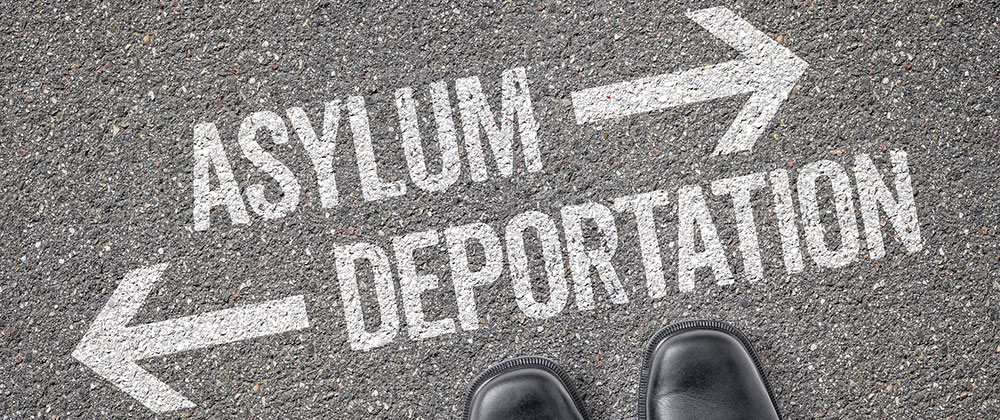Notice of Proposed Rulemaking was published on March 30, 2012 that would reduce the time of separation abroad for spouses, children and parents of U.S. citizens. Provisional waivers would be given to these immediate relatives in the United to avoid extreme hardship to U.S. citizen spouses, and/or to their U.S. citizen parents. Heretofore these immigrants who returned to their countries for their visa interviews were usually compelled to stay abroad until their waivers were granted, which often could take from 6 months to 2 years.
This new proposal allows these immigrants who are illegally within the U.S. to apply for a waiver in the U.S. before departure. Since the law requiring a return to the immigrant’s country was passed by Congress and signed by the President in 2000, this law could not be changed by the President without a new law from Congress. The proposal for a provisional residence granted in the U.S. through a waiver effectively will allow these immigrants to be granted almost immediately permanent residence when they return to their country. The Consul who will consider the immigrant’s right to return to the U.S. for permanent residence needs only to consider if the immigrant is otherwise admissible. This means the issue that the immigrant who entered without a visa or who overstayed the authorized period is not to be considered. Otherwise admissible means as infraction or crime committed by the immigrant in his/her own country or as another example failure to meet the poverty level in the U.S. If a U.S. citizen applied for a spouse and the U.S. citizen earned less than $18,000 the previous year, the U.S. citizen would need to have a co-sponsor who has sufficient income. Otherwise admissible includes the issue of the level of poverty. To apply for the waiver the U.S. citizen needs to have an already approved alien relative petition. If an immigrant is in removal proceedings, currently, the USCIS has not yet decided how to treat this issue. If after approval of provisional residence, the immigrant returns to the U.S. without a visa, provisional residence would be revoked.
ASYLUM, HUMANITARIAN
An applicant for asylum who was proved past persecution but cannot prove this condition still persists may still obtain a humanitarian asylum visa based on the possibility that the applicant might suffer harm on returning to his/her country. This possibility of harm may not relate to race, religion, nationality, membership in a particular social group or political opinion but only on the severity of harm, regardless of the cause such as economic stress, or the potential for physical or psychological injury.
Changed circumstances of a country such as Albania that was formerly a Communist country have had refugees that had formerly suffered severe persecution. Now such refugees because of that had changed circumstances where communism has been eliminated as a form of government now would not be exposed to persecution. Still the Board of Immigration appeals has found that even though a present day refugee no longer has proof of a well-founded fear of the government would still be able to prove compelling reasons arising out of the severity of the past injury by a demonstration that the likelihood that he/she may suffer other serious harm if removed to his/her country would be possible. Thereby humanitarian asylum would be available. The Board affirmed its right to award a discretionary humanitarian asylum visa based upon a subjective fear arising out of legitimate fear of physical, psychological and social harm previously suffered from the former government, which had let to the refugee’s permanent injuries. The Board has reasoned that other serious harm would include besides affliction for race, religion, nationality, membership in a particular social group or political opinions equal injuries in effect as persecution. In other words the Board held that the focus should be on current conditions and the potential for new physical or psychological harm that equals the severity of persecution in the past, although wholly unrelated to the past harm. It would not be required to prove that the current harm is connected to the past harm, merely that there is now a possibility of injury not necessarily related to present nationals of his/her country but only because of their previous harm suffered at the hands of the previous government. Thus the severe mental or emotional or physical injury previously suffered could singularly affect a refugee who experienced past persecution as being a person who remained vulnerable to fear and apprehension that continued even though the country’s conditions had changed.
DRUG TRAFFICKING EVIDENCE TO PROVE NOT AN AGGRAVATED CRIME
Conviction for possession of marijuana with intent to distribute under State law requires an accused person to prove that it is not an aggravated felony under federal law on the ground that the quantity was trivial and there was no intent to sell. An Immigration Judge had gone outside of Court records to excuse an immigrant which the Department of Justice appealed to the Board of Immigration Appeals.
An Immigration Judge in Virginia had determined that a permanent resident convicted of a state misdemeanor for possession of slightly less than 28 grams of marijuana with intent to sell for which he received a sentence of 12 months incarceration which had been suspended for 11 of those 12 months, nevertheless found the immigrant removable. However the Judge deemed that he could mitigate the hardness of removability by referral to evidence outside the Court record in that there was no intent to sell. The Judge reviewed police records and lab reports that had not been presented in open Court.
The Department of Homeland Security appealed to the Board of Immigration Appeals arguing that the Judge had exceeded his authority by going outside the Court records. The Board decided that the State drug law may only be considered an aggravated felony if the terms of imprisonment included at least a maximum of one year and that the state law must contain the same elements as the federal law, namely, it is a conspiracy to distribute an indeterminate quantity of marijuana with intent to distribute. Since the state law did not correspond, it was not a federal aggravated felony. The fact that the Judge reviewed the lab reports and the police reports outside the records was legitimate because it pertained to mitigating circumstances in determining that by the preponderance of the evidence there was a lack of proof that there was no intent to sell. The key to the case, however, was that the state law did not correspond to the federal law.
If you need help or advise, Call Us: (212)944-9420 or Email: Info@oltarsh.com
Our assistance is only a phone call, or e-mail communication away!



